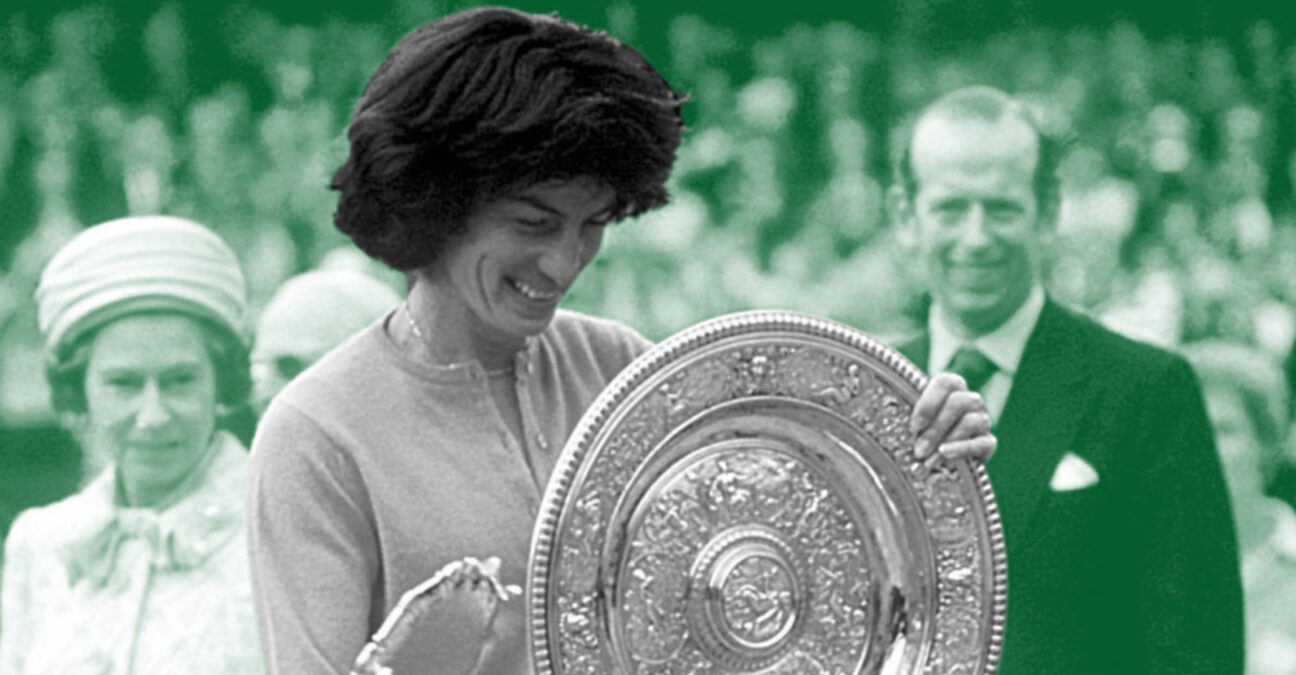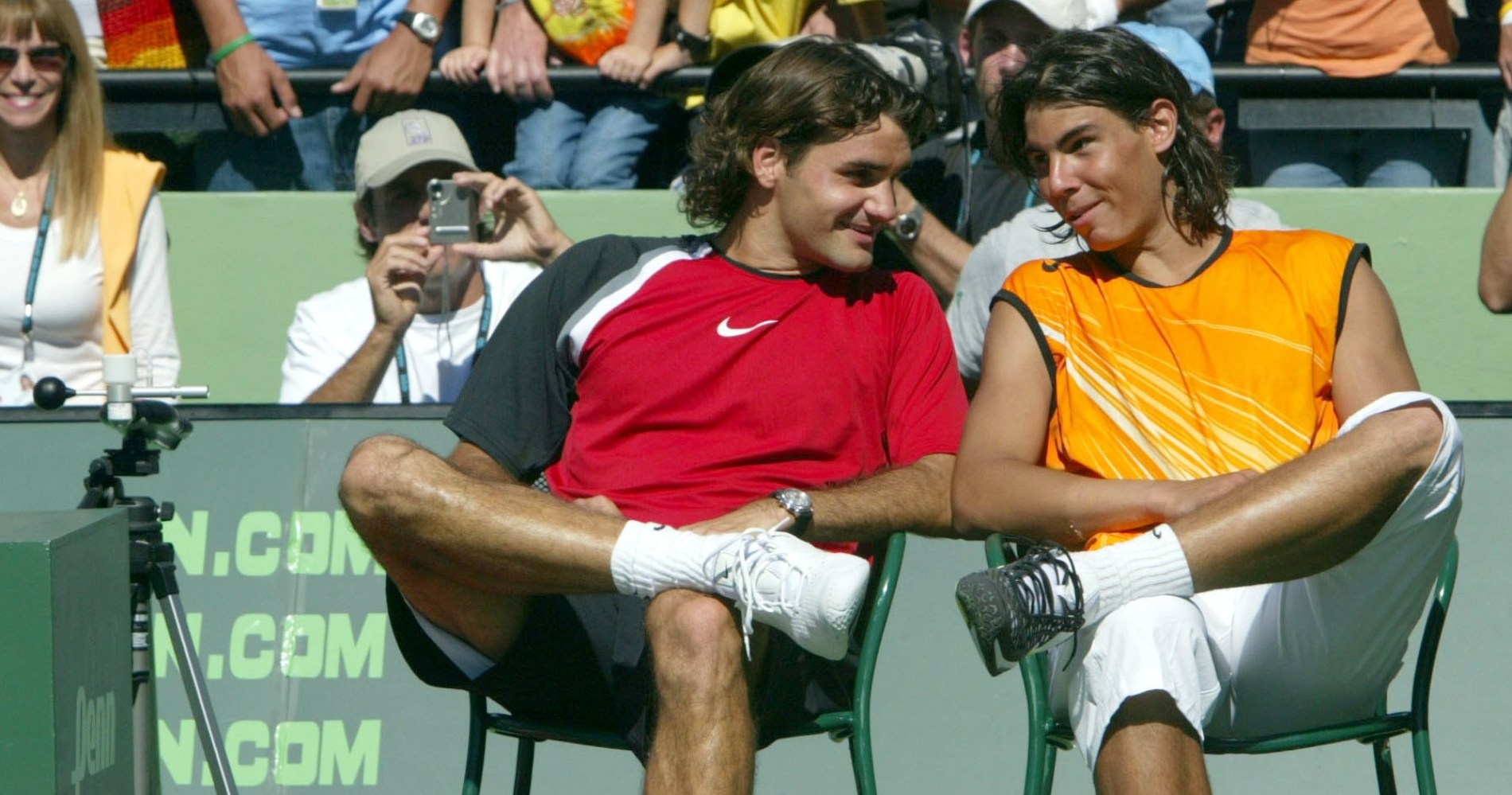July 1, 1977: The day Virginia Wade won the centennial Wimbledon ladies singles title
Every day, Tennis Majors takes you back in time to relive a tennis event which happened on this specific day. On this day in 1977, British fans witnessed their Queen hand over the ladies singles trophy to one of their home players
 DATE TAKEN: July 2, 1977—Virginia Wade holds the Wimbledon championship trophy. ORG XMIT: UT531
DATE TAKEN: July 2, 1977—Virginia Wade holds the Wimbledon championship trophy. ORG XMIT: UT531
What exactly happened on that day?
On this day, July 1, in 1977, for the centennial anniversary of the tournament, Virginia Wade became the last British woman to win the ladies singles at Wimbledon, defeating Betty Stove in the final (4-6, 6-3, 6-1). Wade achieved that feat in front of the Queen of England, who was celebrating her Silver Jubilee and had not attended Wimbledon since 1962.
The players involved: Virginia Wade and Betty Stove
- Virginia Wade: The two-time major winner
Virginia Wade, born in 1945, was a member of the top 10 since the early years of the Open Era. In fact, her early memorable results included winning the first-ever Open tournament in tennis history, the 1968 British Hard Court Open at Bournemouth.
A few months later, she claimed her first major title at the US Open, defeating Billie Jean King in the final (6-4, 6-2). This first Grand Slam title was followed by a second one, at the 1972 Australian Open, where she defeated local favourite Evonne Goolagong in the final (6-4, 6-4). However, as a British player, her dream was to triumph at her home Slam, Wimbledon.
Despite having reached the quarter-finals four times, and the semi-finals in 1974 and 1976, she had far failed to reach the final at the All England Club. In 1977, Wade had already accumulated 43 titles on the tour and was the third seed at Wimbledon.
- Betty Stove: The three-time Grand Slam doubles champion
Betty Stove, from the Netherlands, was seeded seventh at Wimbledon in 1977. The Dutchwoman, who had competed at the All England Club for the first time in 1964, had seen her career interrupted for 18 months by illness in the late 1960s, and at the time, she had been advised to quit professional tennis. She ignored the advice, and came back to claim two singles titles and three Grand Slam doubles titles in 1972 (Roland-Garros and Wimbledon with Billie Jean King, and the US Open with Francoise Durr).
The place: Wimbledon
Wimbledon is the oldest and the most prestigious tennis tournament in the world. Held at the All England Lawn Tennis and Croquet Club since 1877, it moved to its current location in 1922, the same year when the Centre Court was built. Considered by many as the most intimidating court in the world, with its famous Rudyard Kipling quote above the entrance (“If you can meet with triumph and disaster and treat those two impostors just the same”), the Centre Court had seen the best players of all time competing for the title.
After the US Open switched to clay and then hard court in the 1970s, and after the Australian Open switched to hard court in 1988, Wimbledon remained the only Grand Slam tournament to be played on grass, a surface that is usually more suitable for serve-and-volley players. Not only did Wimbledon keep its surface, but it also maintained old-fashioned traditions such as its all-white dress code and the fact that the defending champion was always the first to play on the Centre Court.
The facts: Virginia Wade comes from a set down to win the title
In 1977, eight years had gone by since 1969 and the last British success at Wimbledon, when Ann Haydon-Jones had defeated Billie Jean King in the final. Since then, Virginia Wade had been the best British hope of lifting the trophy. Although Wade had triumphed at the US Open as early as 1968, and then at the Australian Open in 1972, she had never managed to make her way into the final at the All England Club.
The 1977 edition was already meant to be special. It was the 100th anniversary of the tournament, and it was also the Queen’s Silver Jubilee. For this special occasion, Queen Elizabeth was going to attend the Wimbledon final for the first time in 15 years, and Virginia Wade was well-aware of it.
“You can think that if the Queen is going to be there that is the way the stars are aligned,” she would recall, according to Tennis.com. “I think knowing that the Queen was going to be there made me feel, ‘Well, if she is going to be there, I better be there. And if I am there, I better win.”
Wade defeated all her opponents in straight sets until the semi-finals, where she faced the undisputed world No 1 and defending champion, Chris Evert, who held a 22-5 career lead over her. However, this time, Wade didn’t stray from her aggressive game plan and played the perfect match to prevail (6-2, 4-6, 6-1) and advance to her first Wimbledon final.
In that final, she faced Betty Stove, who had prevented the crowd from an all-British final by defeating Sue Barker in the semi-finals (6-4, 2-6, 6-4). With her massive serve, the Dutchwoman soon put Wade in great difficulty. To the public’s dismay, Stove took the first set, 6-4, but that did not affect Wade’s determination or confidence.
“I’ve played this Wimbledon different to all the others and haven’t even looked little children in the eyes in case they want to distract me with autographs,” she explained on the following day. “ C’mon girl, I was saying, watch the ball, on your toes, come on.”
After taking g a 3-0 lead in the second set, Wade saw her opponent level the score to 3-3, but she heavily dominated the following games to finally triumph, 4-6, 6-3, 6-1, in front of a frenzied public. To put the cherry on top of her cake, Wade was handed the Wimbledon trophy by the Queen herself while the crowd sang “For She’s a Jolly Good Fellow”.
“It was like a fairy tale, with everyone cheering for the Queen and cheering for me”, she said, according to The Guardian. “I’ve never seen an English crowd like it.”
What next? Britain still awaits its next Wimbledon women’s singles champion
Betty Stove would remain famous for having played, and unfortunately lost, that year, three different finals at Wimbledon, in singles, doubles and mixed doubles. After her career, she would become Hana Mandlikova’s coach throughout the 1980s.
Virginia Wade would not reach another Grand Slam final, although she would reach the semi-finals at Wimbledon in 1978, stopped by Chris Evert in her attempt to defend her title (8-6, 6-2). She would retire in 1985, and would become a commentator for the British Broadcasting Corporation (BBC). Wade would be inducted into the International Tennis Hall of Fame in 1989. Prior to the 2022 Championships, 45 years after her triumph, she still remains the last British woman to win at Wimbledon.









